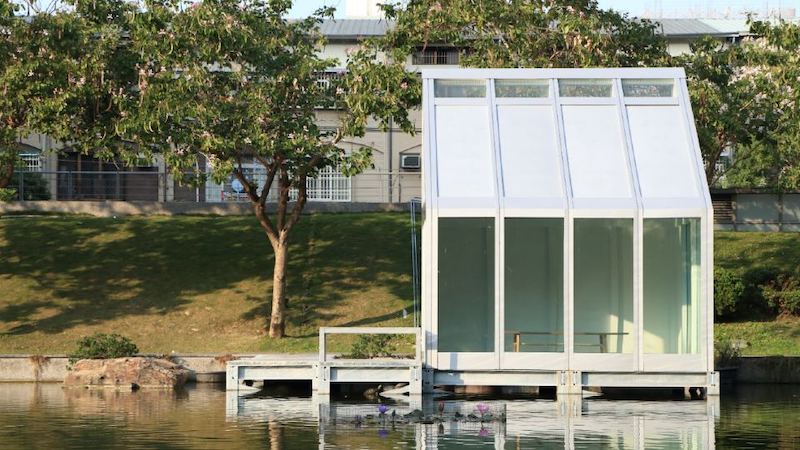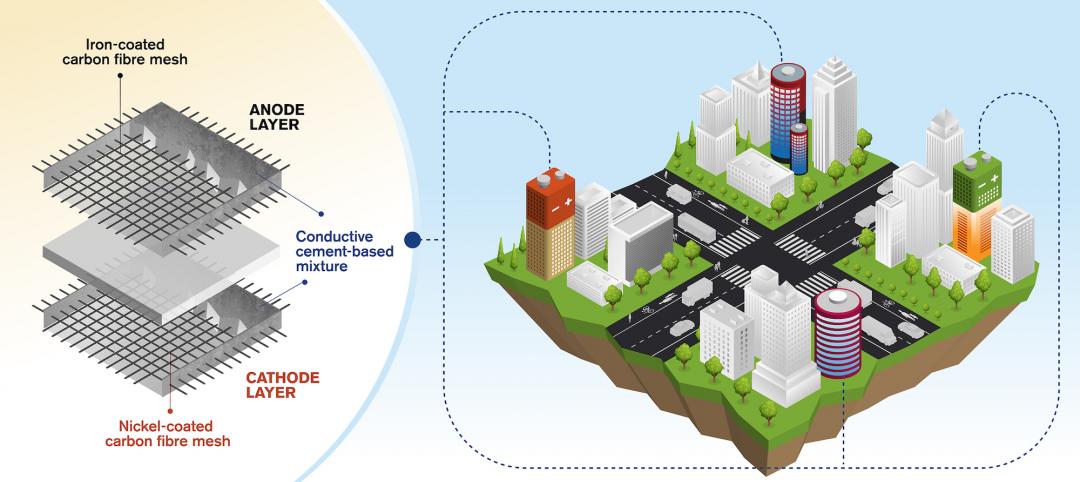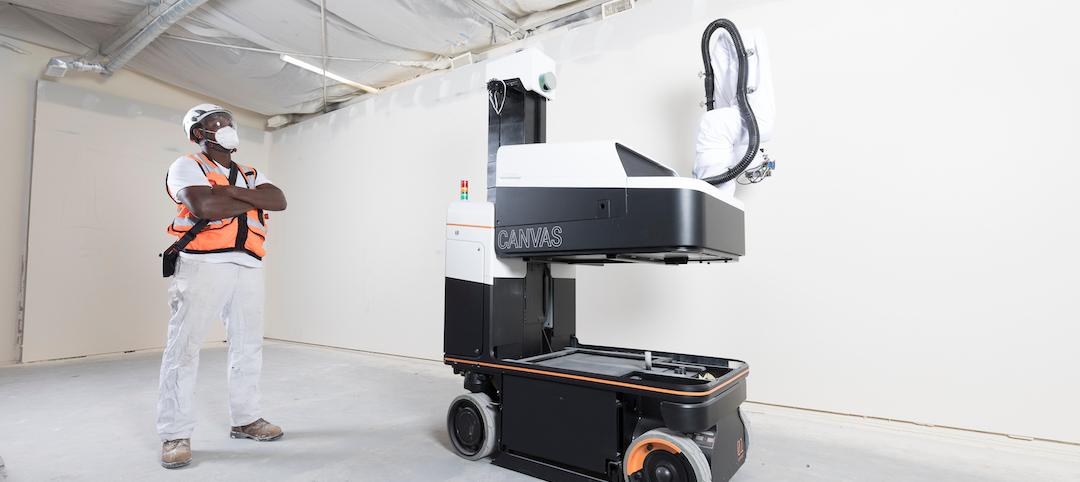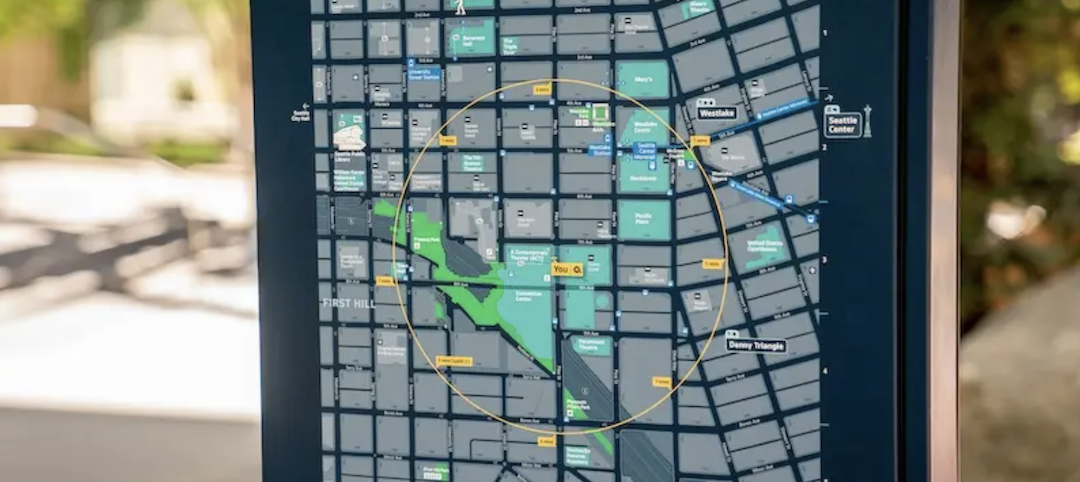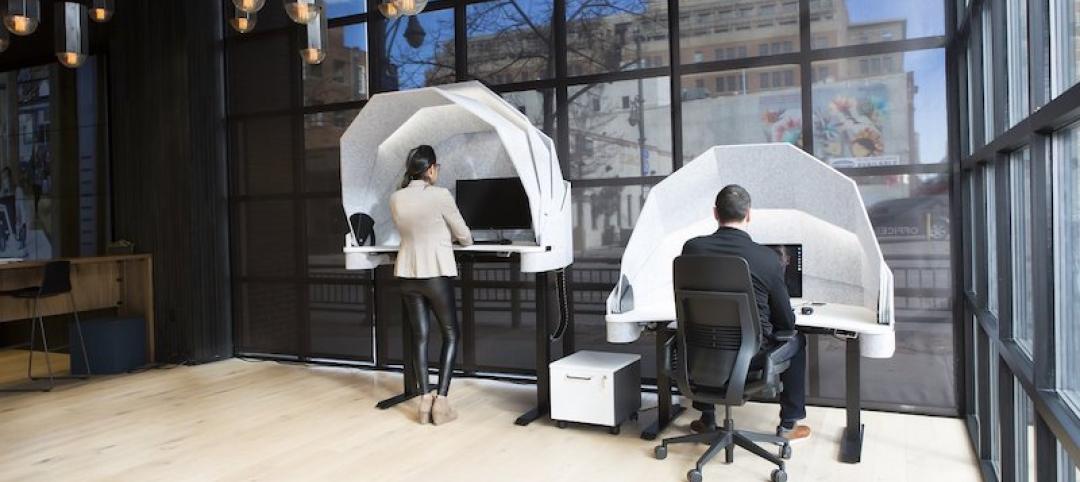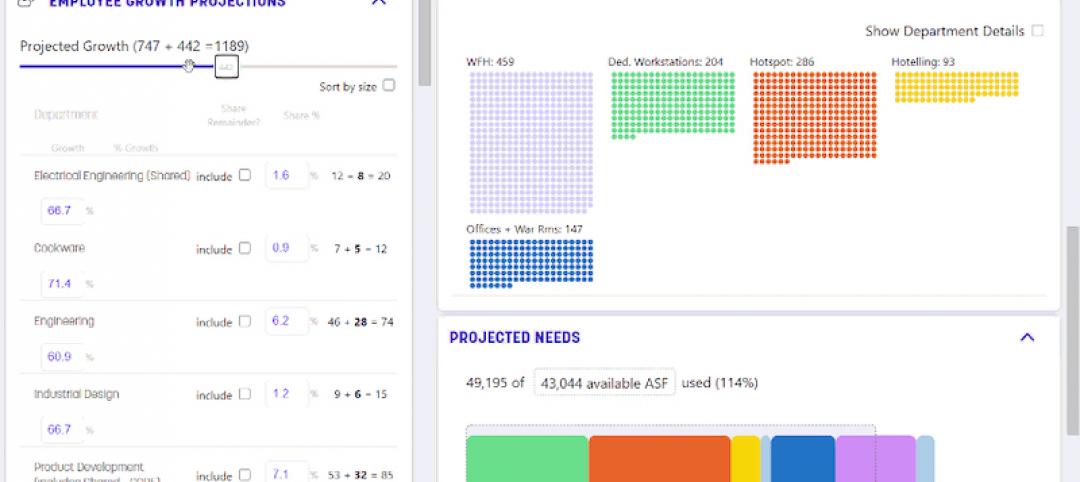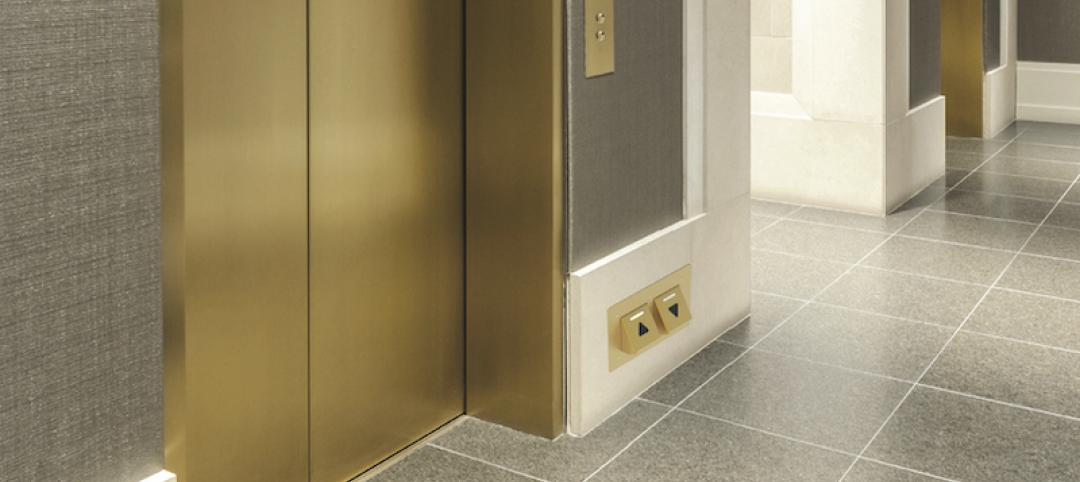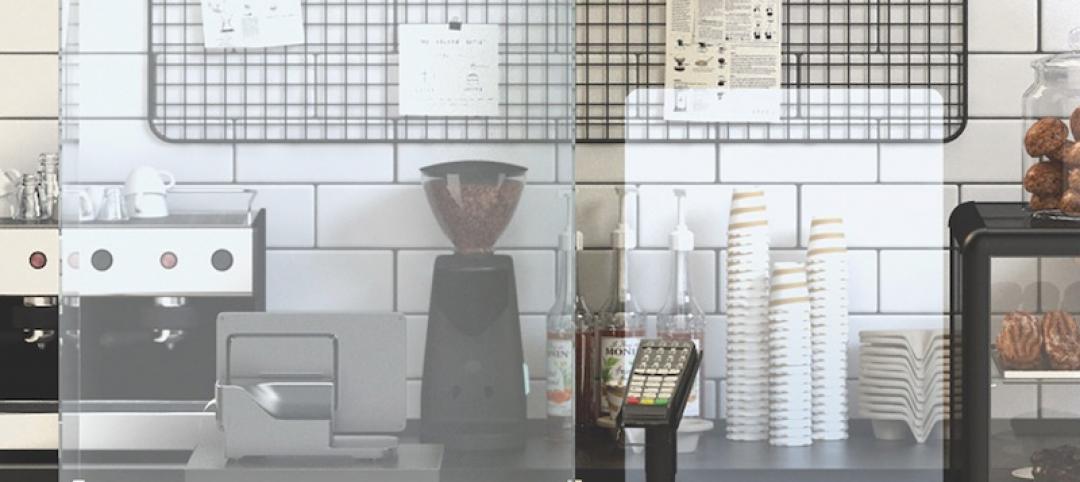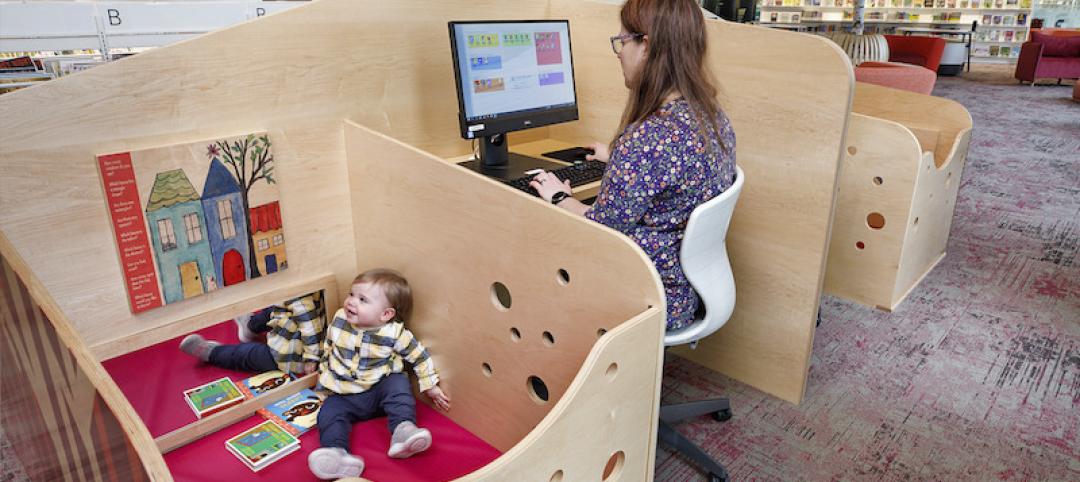Created by Dr. Matyas Gutai of Loughborough University, the water-filled glass (WFG) system uses water to heat and cool structures in an attempt to reduce building energy use. WFG utilizes a sheet of water trapped between a panel of glass. The system involves connecting the water-filled window panels to a storage tank, which can be located anywhere in the building, using pipes hidden in the walls, allowing the water to circulate between the two.
In warm weather, the buildings stay cool as the water absorbs external and internal heat. The warm water is then circulated to the storage tank. The heat is stored in the tank where, if the building temperature drops, it can be brought back to the walls to reheat the building using a monitoring system similar to central heating. The water can also be used for hot water supply.
Gutai has recently developed a version of the WFG system that uses a heat pump, which can heat and cool the water depending on the season.
Two prototype buildings, located in the differing climates of Hungary and Taiwan, have been created to test the system. Gutai used data gathered from these two “water houses” to develop a simulation system that evaluates the energy performance of the structures and the WFG system.
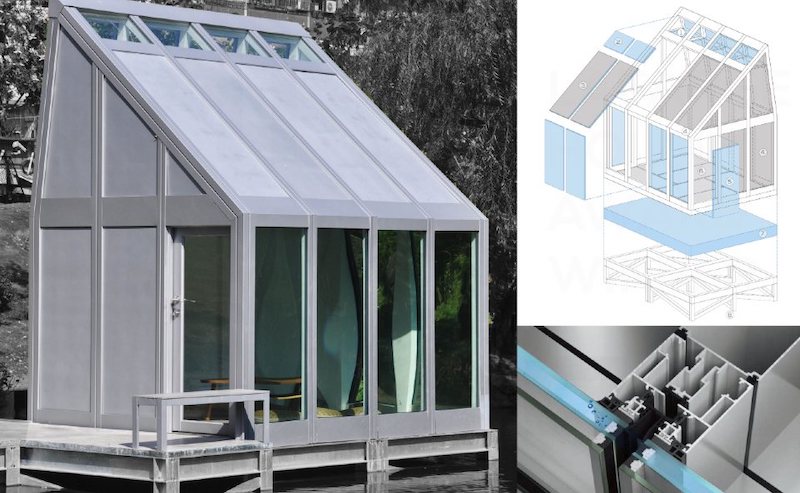 Developed by Loughborough University professor Matyas Gutai, water-filled glass utilizes a sheet of water trapped between a panel of glass to help regulate temperature swings in buildings. Simulation testing shows the technology will perform in all major climate regions.
Developed by Loughborough University professor Matyas Gutai, water-filled glass utilizes a sheet of water trapped between a panel of glass to help regulate temperature swings in buildings. Simulation testing shows the technology will perform in all major climate regions.
A July 2020 study, Energy Consumption of Water-filled Glass (WFG) Hybrid Building Envelope (bit.ly/2ZZMHFR), Gutai focused on the annual energy consumption for a typical office space (17.5 sm) with one glazed façade of equilateral orientation (south in the northern hemisphere). He used the simulation to explore how this office with a WFG system would fair in 13 cities from all major climate regions. Gutai then compared the WFG system with traditional systems of double-pane low-e and triple-pane filled with argon gas.
Among the findings of Gutai’s study:
• WFG is able to use the absorption of the water effectively to improve the energy performance of glass
• The water layer lowers the load for heating and cooling effectively, minimizing daily and seasonal peaks
• The WFG system saves energy in all major inhabited regions (every climate region except polar) with savings of 47-72% compared to double-pane low-e glass and 34-61% compared to triple-pane argon-filled glass.
“Glass is currently a liability in buildings as it compromises energy consumption, thermal comfort, acoustics and other aspects,” said Gutai. “WFG changes this paradigm and turns glass into an opportunity for sustainable construction. It shows us that thinking holistically about buildings and building components leads to a more efficient and sustainable built environment.”
Additional benefits of WFG include acoustics, reducing the need for building shading, and eliminating the need to color the glass.
Related Stories
AEC Tech Innovation | Mar 9, 2022
Meet Emerge: WSP USA's new AEC tech incubator
Pooja Jain, WSP’s VP-Strategic Innovation, discusses the pilot programs her firm’s new incubator, Emerge, has initiated with four tech startup companies. Jain speaks with BD+C's John Caulfield about the four AEC tech firms to join Cohort 1 of the firm’s incubator.
Great Solutions | Jan 18, 2022
Researchers develop concept for rechargeable cement-based batteries
Researchers from the Department of Architecture and Civil Engineering at Chalmers University of Technology in Gothenburg, Sweden, have created a concept for rechargeable batteries made of cement. The concept involves a cement-based mixture with small amounts of short carbon fibers added to increase conductivity and flexural toughness.
Great Solutions | Nov 22, 2021
Drywall robots take the risk out of the finishing process
Canvas is using robots to complement the work already being done by drywall professionals.
Great Solutions | Sep 23, 2021
Seattle looks to become America’s most walkable city with a new citywide wayfinding system
Seamless Seattle will support the Seattle Department of Transportation’s commitment to increase the percentage of trips made by walking to 35% by 2035.
Great Solutions | Jul 9, 2021
MojoDesk creates a new solution for managing open office distractions
The MojoDome allows for a private work space while also maintaining a collaborative environment.
Great Solutions | Mar 18, 2021
Follow the leader: New following technology better equips robots for the jobsite
New proof-of-concept from Piaggio Fast Forward and Trimble enables robots and machines to follow humans.
Great Solutions | Feb 11, 2021
Simplifying the return to the office
A new web-based tool from Sasaki takes the guesswork out of heading back to the workplace.
Great Solutions | Aug 10, 2020
From lobby to penthouse, elevators can be a 100% touch-free experience
The Toe-To-Go elevator system allows riders to operate the elevator entirely with their feet.
Great Solutions | Jul 13, 2020
Essential protection for businesses
Custom protective barriers help keep essential business employees safe.
Great Solutions | Apr 13, 2020
Family workstations highlight the new Fairfield Area Library
The workstations are the perfect remedy for squirming, restless children and toddlers.


